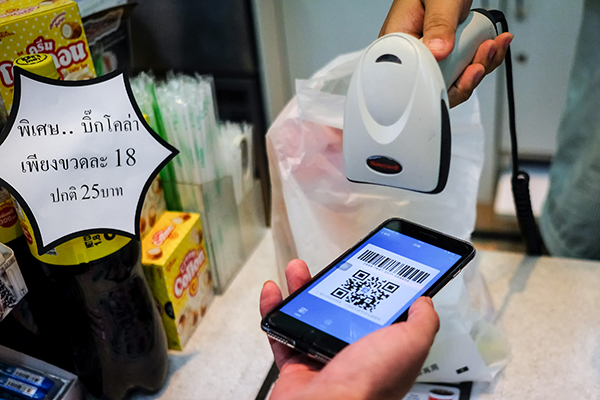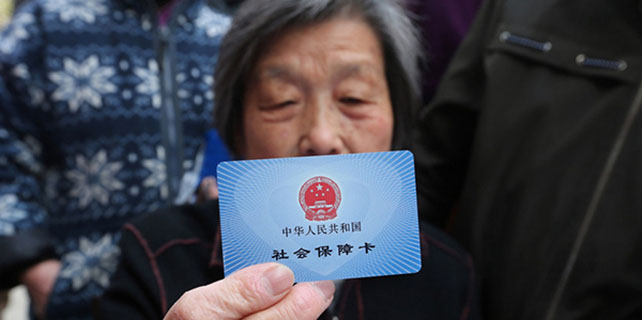Alibaba-Amazon brawl looms on SE Asia
 |
|
Jack Ma, chairman of Alibaba Group Holding Ltd, briefs a Thai delegation headed by Deputy Prime Minister Somkid Jatusripitak (left) about the e-commerce group's businesses. [Photo/Xinhua] |
US major set to challenge Chinese behemoth's Lazada platform in regional online shopping
Alibaba Group Holding Ltd and Amazon.com Inc are about to clash in Southeast Asia.
And Singapore-based online marketplace Lazada Group SA, which Alibaba bought in April for $1 billion, will be right at the heart of that conflict.
Lazada, Southeast Asia's largest e-commerce site, is rolling out a series of initiatives in anticipation of the US giant's entry next year.
It's expanding its delivery network within the region and beyond, via partners in China and South Korea.
It's on the prowl for investments and acquisitions to shore up its supply chain. And it intends to delve deeper into online groceries in 2017, a notoriously difficult market it got into by buying RedMart.
That's because Lazada's home turf-Southeast Asia-is shaping up to be the next battleground for Alibaba co-founder Jack Ma and Amazon Chief Executive Officer Jeff Bezos.
Lazada covers six countries-Indonesia, Malaysia, the Philippines, Singapore, Thailand and Vietnam-and runs 12 warehouses and 92 distribution centers from which it conveys goods directly to buyers.
While still lacking the transport and payments infrastructure crucial to the widespread adoption of e-commerce, the region has become the world's fastest-growing internet arena, with a combined populace of 620 million people getting more comfortable with online shopping.
Asked about the anticipated imminent incursion by the world's largest online retailer, Lazada CEO Maximilian Bittner said: "It's a jungle out here. We're looking forward to seeing how they (Amazon) will differentiate themselves."
Now that Alibaba has established its dominance in China and Amazon has taken the lead in the US, both are looking to make their mark overseas. The US company in particular has made huge strides in India.
 |
|
A Thai vendor scans the Alipay barcode on a Chinese buyer's smartphone for payment in Bangkok. [Photo/Xinhua] |
Alibaba took control of Lazada from Rocket Internet in what remains its largest overseas move to date. The company Bittner started in 2012 is now pivotal to quickening the Chinese e-commerce giant's so-far tentative steps abroad, and fulfilling Ma's ambitions of becoming a truly global business.
Amazon meanwhile hasn't yet voiced its intentions for Southeast Asia, but the industry expectation is that its constant quest for growth will lead it there by 2017.
Techcrunch reported in November the company is likely to bring its Prime delivery service and Amazon Fresh to Singapore in the first quarter, using the wealthy, cyber-savvy city state as a springboard to the rest of the region.
It has demonstrated a willingness to spend on building a local presence, and an ability to thrive in the difficult, fragmented market conditions that characterize Southeast Asia.
Indeed, the US company was among the investors with whom RedMart negotiated to sell its business, said the startup's co-founder and CEO Roger Egan. He wouldn't elaborate and Amazon representatives didn't respond to requests for comment.
"Both of them will want to dominate Southeast Asia," said Thompson Teo, an associate professor at NUS Business School in Singapore. "Alibaba has acquired companies to shorten the learning curve and grow faster. It's going to give Amazon a good fight."
Alibaba's experience quashing Amazon in China may yet prove indispensable. Central to Lazada's effort is building a system that can deliver goods into Southeast Asia from merchants in other countries, a cross-border model akin to Alibaba's.
The region is now split between a mere handful of operators dominant in certain areas, including MatahariMall and Tokopedia in Indonesia and unicorn startup Garena.
Lazada counts Kerry Logistics Network Ltd, DHL in Thailand and JNE Express in Indonesia among its more than 100 logistics partners. In recent months, it's also teamed up with China's State-backed postal service and CJ Korea Express Corp. In September, Lazada's volume in Indonesia grew 2.5 times from a year ago, Bittner said.
"We see ourselves as a logistics control tower in Southeast Asia," he said. "We are looking at building a better, more sophisticated logistics capability. The world is shifting toward borderless e-commerce system and that's very much the vision of Alibaba and us."
Now that RedMart's given it a foothold in Singapore, Lazada also plans to begin selling groceries online in one of the capital cities of Malaysia, Indonesia or Thailand as early as the second half of 2017, he said.
RedMart has more than 150 trucks ferrying an average of 22 food items from chocolate to frozen dumplings per order. It plans to cut delivery times to four to six hours (from mostly next-day) by the end of the first half of 2017, Egan said. By the second half, the company will offer an express service, shipping groceries within an hour or two of ordering online, he said.
"Grocery is seen as notoriously difficult one to do online, but it's the largest market representing 60 percent of overall Southeast Asian retail," Egan said. "Customers are much more engaged. They visit twice a week so the frequency allows you to develop a deep relationship with customers."
Bloomberg









